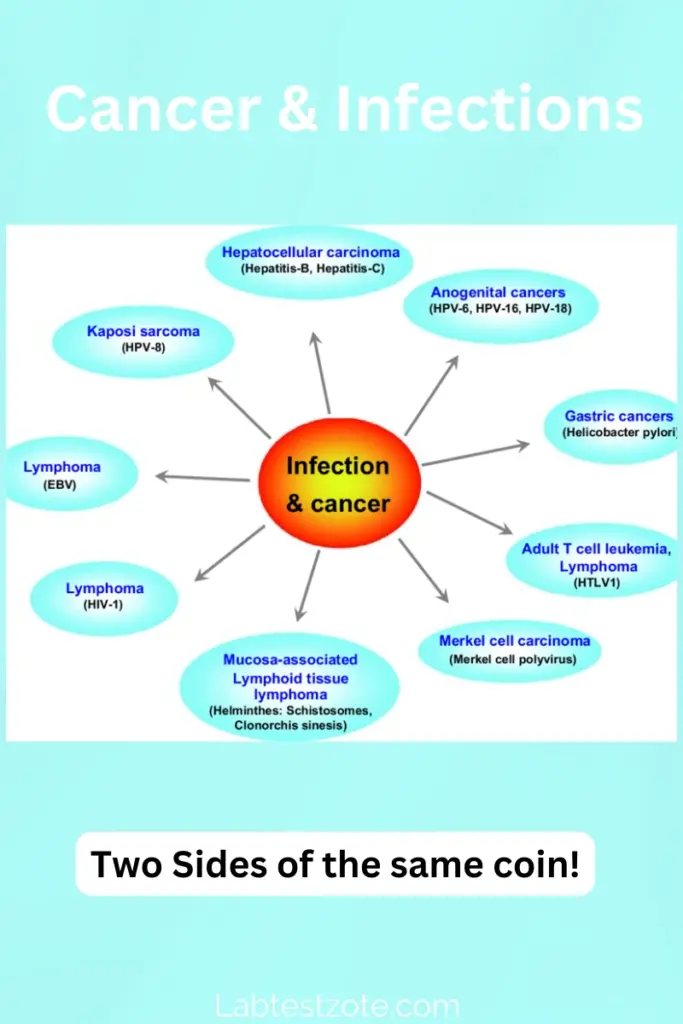How are Infectious Diseases And Cancer Related?
The connection between infectious diseases and cancer is a complex and evolving field of study. Infections, whether bacterial, viral, or parasitic, can play a significant role in the development and progression of certain types of cancer. Understanding these links is crucial for both prevention and treatment strategies.
Table of Contents

Key Points/Summary
Infections can either promote or inhibit cancer development, depending on various factors. Acute infections may reduce cancer risks, while chronic infections can contribute to carcinogenesis. The mechanisms behind this association involve alterations in immune responses, genetic factors, and inflammatory processes.
Bacterial Infections and Cancer
- Helicobacter pylori: Associated with gastric cancer.
- Streptococcus bovis: Linked to colorectal cancer.
- Chlamydia trachomatis: Implicated in cervical cancer.
- C. pneumonia: Connected to lung cancer.
- Salmonella Typhi: Associated with gallbladder cancer.
Viral Infections and Cancer
- Human Papillomavirus (HPV): Known to cause cervical cancer.
- Hepatitis B and C viruses: Linked to liver cancer.
- Epstein-Barr virus (EBV): Associated with certain lymphomas and nasopharyngeal cancer.
Parasitic Infections and Cancer
- Schistosoma haematobium: Linked to bladder cancer.
- Opisthorchis viverrini: Associated with bile duct cancer.
- Clonorchis sinensis: Implicated in cholangiocarcinoma.
Fungal Infections and Cancer
- Aspergillus fumigatus: Associated with lung cancer in some cases.
Prevention Strategies
- Maintain good hygiene practices.
- Seek appropriate vaccinations.
- Avoid high-risk behaviors that may lead to infections.
- Regular screening for infections in high-risk populations.
Screening Modalities
- Regular screenings for viral infections like HPV and Hepatitis.
- Diagnostic tests for bacterial infections like H. pylori.
Diagnosis
- Biopsies and molecular tests to identify infectious agents.
- Imaging studies to assess the extent of infection-related changes.
Treatment and Management
- Antibiotics, antivirals, or antiparasitic medications for specific infections.
- Targeted therapies for cancers associated with infections.
- Immunotherapy to boost the immune response against infection-related cancers.
Understanding the intricate relationship between infections and cancer is vital for effective prevention, early detection, and targeted treatment strategies. By recognizing the role of various infectious agents in cancer development, healthcare providers can tailor interventions to reduce the burden of infection-related cancers.
Sharing is Caring
Disclaimer
The information provided on this medical blog is for general informational purposes only and should not be considered as a substitute for professional medical advice. Always consult with a qualified healthcare provider before making any healthcare decisions or taking any actions based on the information provided on this blog. The authors and publishers of this blog are not liable for any errors or omissions in the content or for any actions taken based on the information provided.

